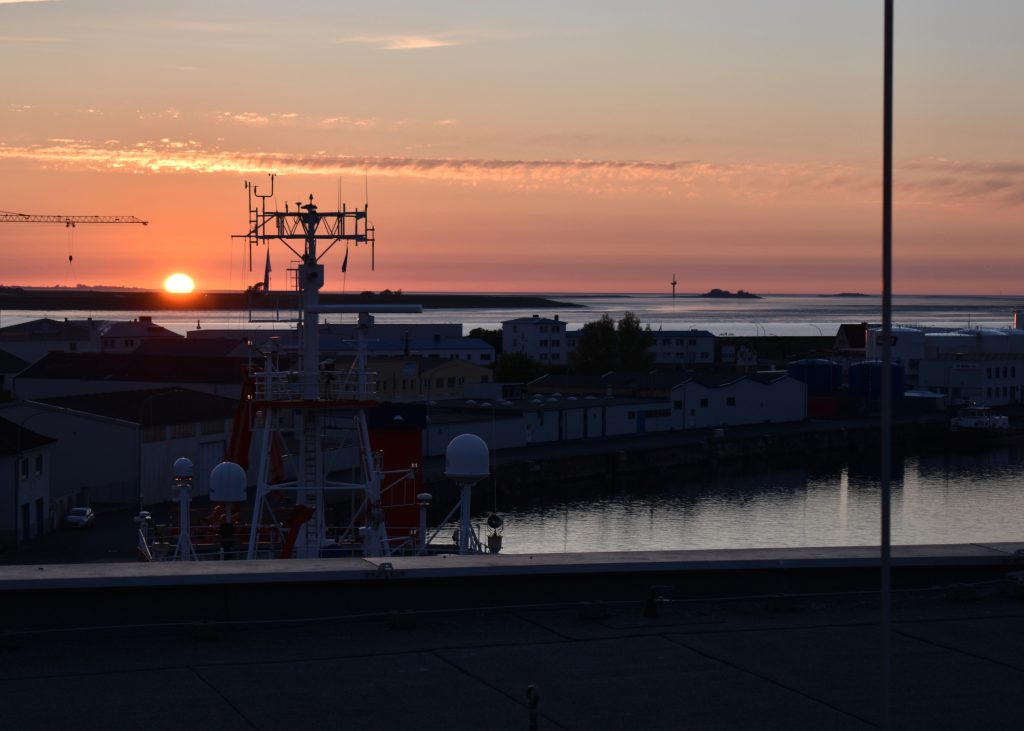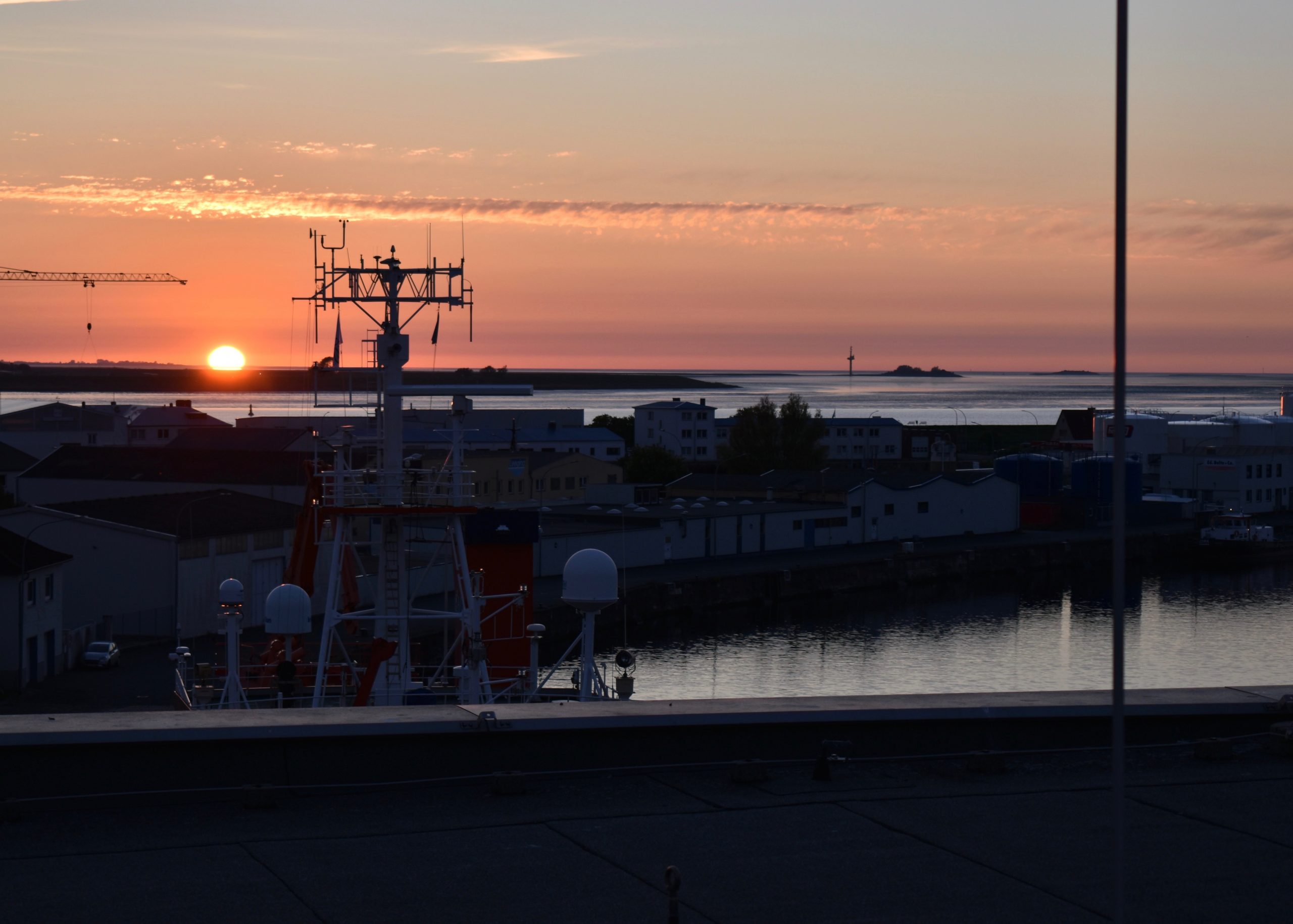by Matthew Shupe, CIRES/NOAA scientist and co-coordinator of MOSAiC
The sun always goes down on time. A few simple calculations using your position on the global and you know when the sun will set. Reliable. Always on time. And so it was calculated that last night would be our last sunset for the foreseeable future. As we continue to move north, past the Arctic Circle, the sun will no longer set, but instead circle around the sky. Feeding an ever-evolving light landscape and making it hard to sleep at night. But this predictability of the sun, its timeliness, is not something that applies to Arctic logistics. No, human maneuvers in the Arctic rarely turn out as planned. Forces beyond our control, and beyond our comprehension, often set in to alter plans. We are seeing this now, as the RV Sonne has throttled back. Now we creep slowly across the North Atlantic for our meetup in Svalbard. No need to rush as the Polarstern will not be there anyway. We track its progress on the navigation system here….. 1 mile of progress in the last hour, but many hours with no progress. 0 miles. Simply stopped in the ice. There was one hour with 6 miles of progress, but the maps suggested that the ship was moving westward during that time; not exactly the direction to Svalbard but likely the easiest way to move in the compressed ice. So Polarstern will be a late arrival to our rendezvous. This is another setback for our journey. Every day of delay on this journey out of the ice means another day delayed on the return as well…. And another day of missing our observations and sampling in the main MOSAiC camp. If only these logistical operations could be planned like the setting sun.


